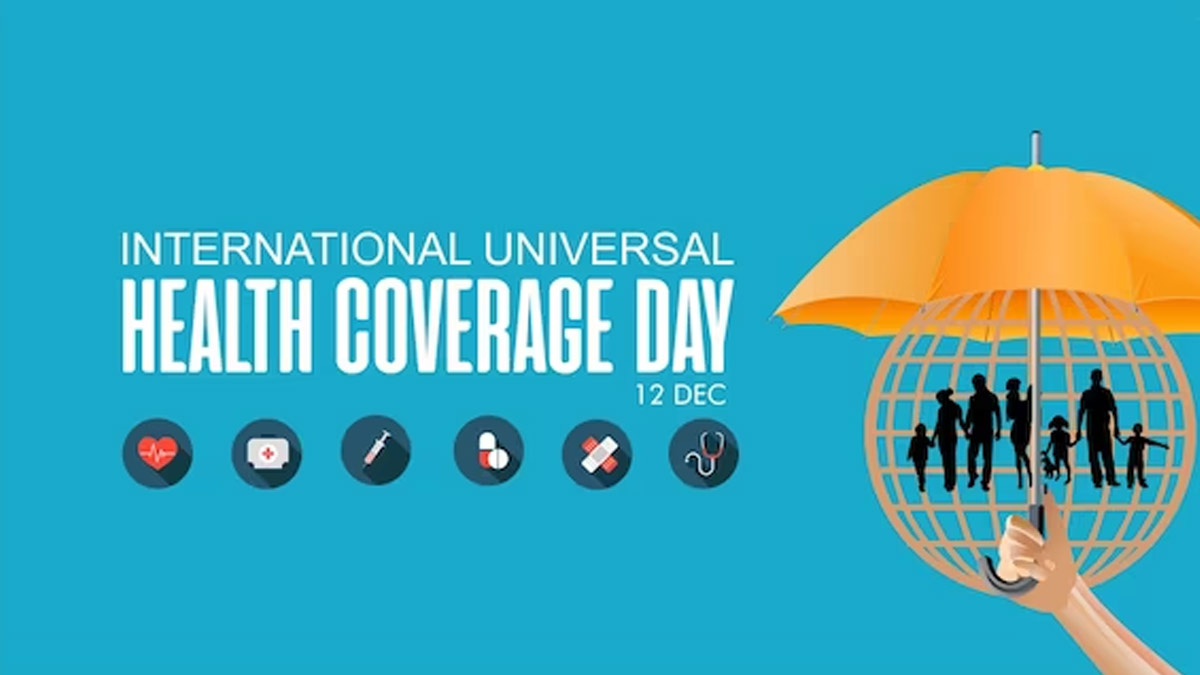
At a time when the world suffers from a health catastrophe or people get diagnosed with some major illness, many don't have the money for treatment or are pushed into poverty due to the cost of treatments. To combat this issue, Universal Health Coverage (UHC), a global initiative aims to ensure that all people and communities have access to essential health services without facing financial hardship. While UHC encompasses a broad spectrum of healthcare, it is crucial to emphasise the significance of eye health in this comprehensive approach.
Table of Content:-
Maintaining healthy vision is not only essential for a person’s overall well-being but also plays a principal role in their ability to lead productive lives. On this World UHC Day, we spoke to Dr Rishi Raj Borah, County Director - India, Orbis, who explained the importance of eye health and preventive measures that can be taken.
The Importance of Eye Health

“Our eyes are windows to the world, allowing us to experience life's beauty and navigate its challenges. Yet, millions of people worldwide suffer from preventable vision impairment and blindness”, said Dr Borah.
According to the Lancet Global Health, an estimated 596 million individuals worldwide suffered from distance vision impairment in 2020, 43 million of whom were blind. A further 510 million people lacked reading glasses, which resulted in uncorrected near vision impairment.
Addressing eye health as part of UHC is not only about treating existing eye conditions but also about preventing them in the first place. A focus on preventive eye care can significantly reduce the burden of eye diseases and improve the overall quality of life for people and communities.
Also Read: Detecting Eye Issues Early: Expert Lists 10 Eye Problems In Children And Their Solutions
Preventive Measures for Eye Health
According to the data published in the National Library of Medicine, US, Due to their widespread negative effects, uneven effects on populations, potential for improvement through treatment and preventive measures, and growing burden as the population ages, vision impairment and blindness are suitable objectives for surveillance.

Dr Borah listed the preventive measures for eye health as follows:
Regular Eye Check-ups
Just as we prioritise routine medical check-ups, regular eye examinations should be an integral part of our healthcare routine. “These check-ups can detect early signs of eye conditions, such as glaucoma, cataracts and macular degeneration, enabling timely intervention,” said Dr Borah.
Healthy Lifestyle Choices
A balanced diet rich in vitamins and minerals, particularly those beneficial for eye health (vitamins A, C and E), contributes to maintaining good vision. Also, avoiding smoking and limiting alcohol intake can further protect the eyes from potential damage.
Also Read: What Is Your Eye Telling You? Expert Explains Eye Twitching, Its Causes And How To Stop It

Protective Measures
Simple actions like wearing sunglasses with UV protection and safety goggles in hazardous environments can safeguard the eyes from harmful elements. These preventive measures are cost-effective and contribute significantly to preserving vision.
Public Awareness and Education
A key aspect of preventive eye care is raising awareness about the importance of eye health within communities. Educational campaigns can provide information on proper eye care practices, early warning signs of eye conditions and the availability of affordable eye care services.
Eye Health and Universal Health Coverage

Incorporating eye health into the UHC agenda ensures that preventive measures are accessible to everyone, irrespective of their socio-economic status. This inclusivity is essential in breaking down barriers to eye care and reducing disparities in vision outcomes.
According to the World Health Organization (WHO), approximately 2 billion people are struggling financially, of which 1 billion are paying catastrophically high out-of-pocket medical expenses or 344 million of whom are furthering their plunge into extreme poverty as a result of medical expenses.
Preventing eye conditions before they escalate not only improves one’s quality of life but also alleviates the economic burden associated with treating advanced eye diseases. “By integrating eye health into the broader UHC framework, healthcare systems can work towards building healthier communities and promoting sustainable development,” highlighted Dr Borah.
Bottomline
Dr Borah concluded, “As the world strives towards achieving UHC, it is imperative to recognise the crucial role that eye health plays in this global initiative. Prioritising preventive measures and making eye care accessible to all can ensure healthier and more productive communities.”
[Disclaimer: This article contains information provided by a registered healthcare professional and is for informational purposes only. Hence, we advise you to consult your expert if you notice any symptoms of eye diseases to get the necessary treatment.]
Also watch this video
How we keep this article up to date:
We work with experts and keep a close eye on the latest in health and wellness. Whenever there is a new research or helpful information, we update our articles with accurate and useful advice.
Current Version